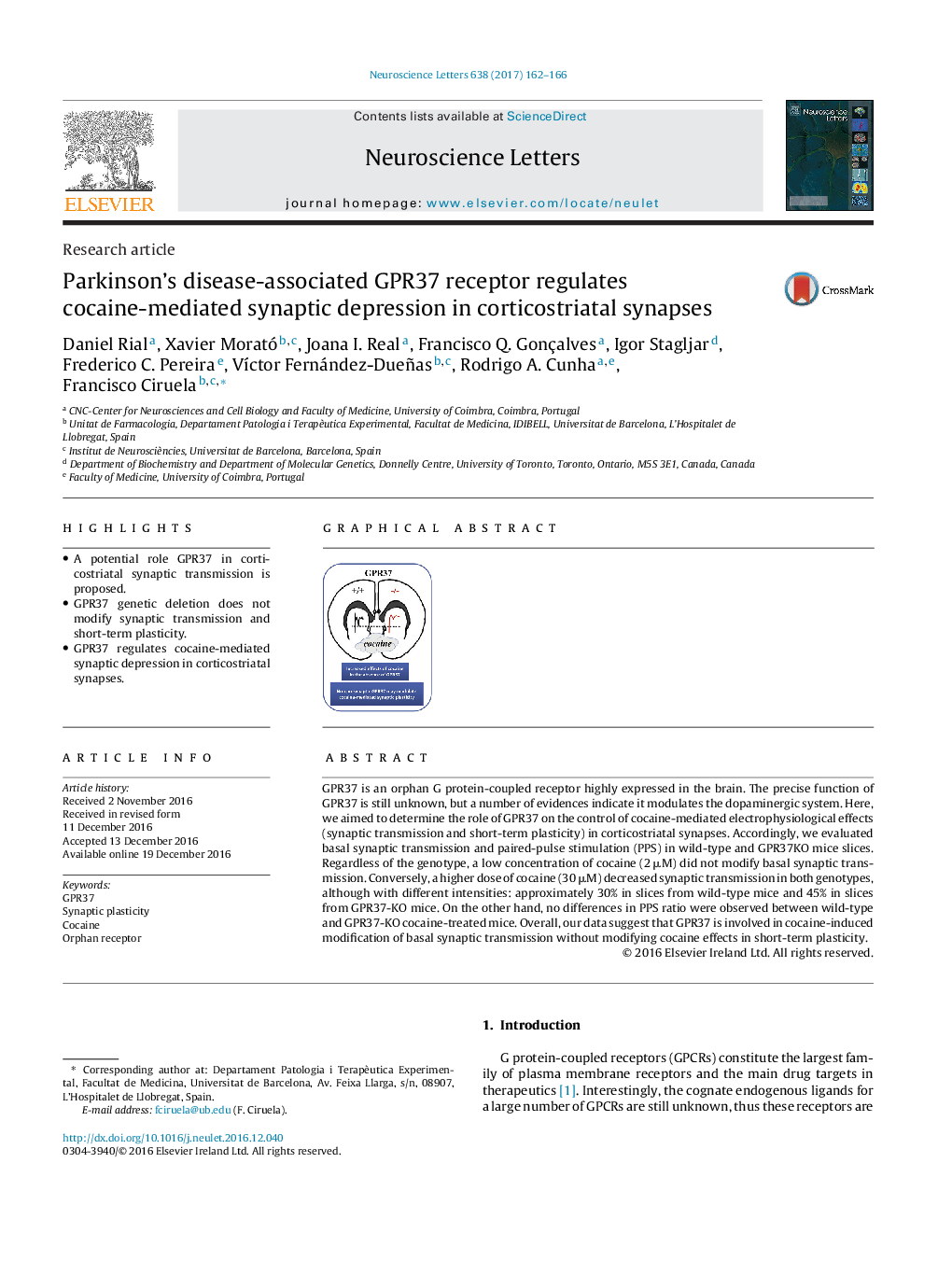| Article ID | Journal | Published Year | Pages | File Type |
|---|---|---|---|---|
| 5738866 | Neuroscience Letters | 2017 | 5 Pages |
â¢A potential role GPR37 in corticostriatal synaptic transmission is proposed.â¢GPR37 genetic deletion does not modify synaptic transmission and short-term plasticity.â¢GPR37 regulates cocaine-mediated synaptic depression in corticostriatal synapses.
GPR37 is an orphan G protein-coupled receptor highly expressed in the brain. The precise function of GPR37 is still unknown, but a number of evidences indicate it modulates the dopaminergic system. Here, we aimed to determine the role of GPR37 on the control of cocaine-mediated electrophysiological effects (synaptic transmission and short-term plasticity) in corticostriatal synapses. Accordingly, we evaluated basal synaptic transmission and paired-pulse stimulation (PPS) in wild-type and GPR37KO mice slices. Regardless of the genotype, a low concentration of cocaine (2 μM) did not modify basal synaptic transmission. Conversely, a higher dose of cocaine (30 μM) decreased synaptic transmission in both genotypes, although with different intensities: approximately 30% in slices from wild-type mice and 45% in slices from GPR37-KO mice. On the other hand, no differences in PPS ratio were observed between wild-type and GPR37-KO cocaine-treated mice. Overall, our data suggest that GPR37 is involved in cocaine-induced modification of basal synaptic transmission without modifying cocaine effects in short-term plasticity.
Graphical abstractDownload high-res image (112KB)Download full-size image
